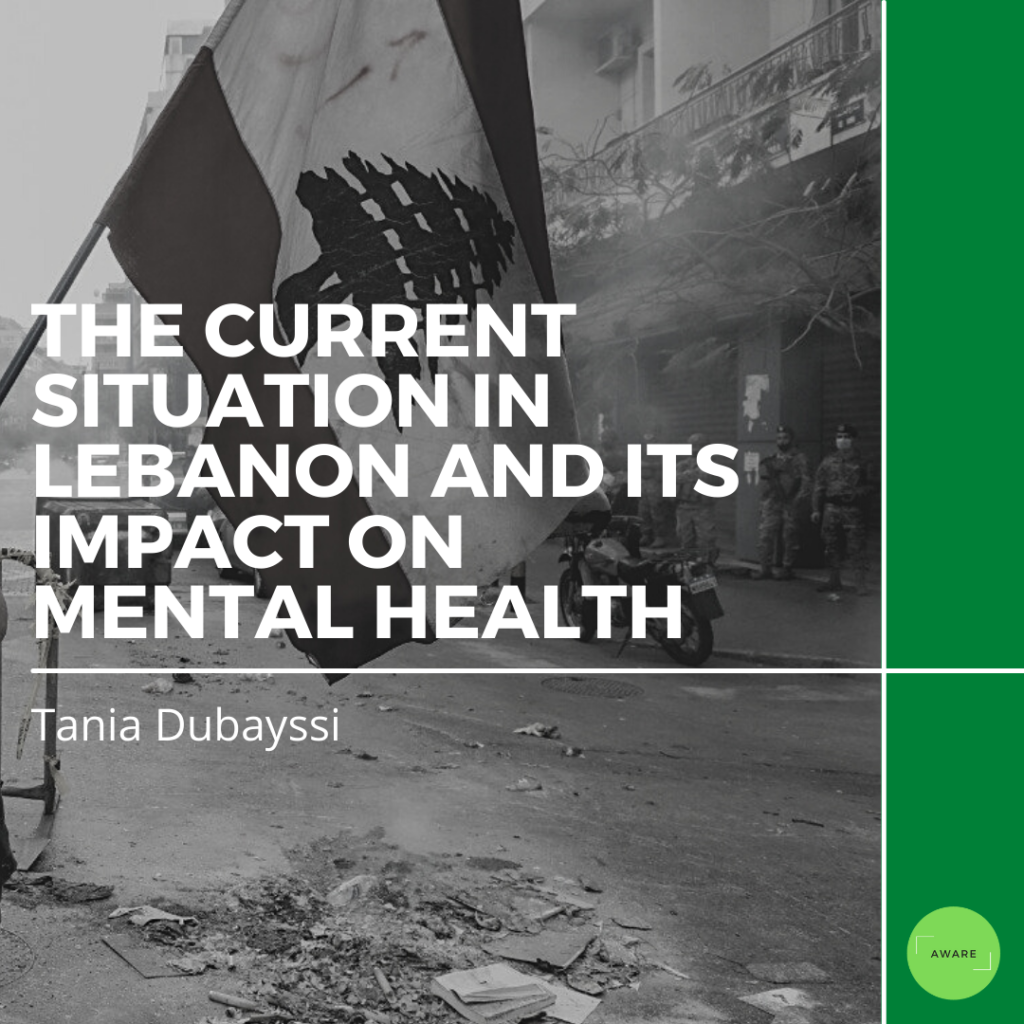Trigger warning: this article discusses trauma.
It is no question that the current living situation in Lebanon is slowly drowning and taking its people with it, all while a pandemic is still on the rise. It is no shock that those living in Lebanon and expats are being terribly affected, physically and emotionally.
What is Happening in Lebanon?
What is happening in Lebanon goes back all the way to the civil war that took place in 1975. This colossal damage piled up debt that has affected the economy ever since. However, the corruption that has led to where it is now can be seen due to the neglect and instability of the government, which has stolen the basic rights of every Lebanese living in Lebanon.
In 2019, with the currency having a major collapse, one of the largest revolutions started in Lebanon, marching down the streets of Beirut in demand for change, basic necessities, and human rights. In addition, this was occurring during a rising pandemic. It was extremely damaging to those who have lost their jobs, homes, and loved ones. A year after, the unforgettable blast happened, traumatizing people into living in a never-ending nightmare.
However, it does not stop there. With the worsening shortages of basic necessities including fuel and medicine, everyday living became a struggle for many. With the economic meltdown, more than half of the population plunged into poverty. The hopeful citizens still manage to work their days through this horrible crisis.
The Situation and its Effects on Mental Health
The constant effects of living in uncertainty have taken a huge mental toll on those living in Lebanon. This has become the reality of the Lebanese, and it is impacting a widespread of people emotionally.
Fear and uncertainty can leave a person feeling stressed, anxious, overwhelmed, and powerless over the direction of their life. It leaves you feeling emotionally drained and demotivated, as well as trapped inside a spiraling hole of never-ending “what ifs” and worst-case scenarios about what can possibly happen and what tomorrow may bring.
Since the devastating blast, many have experienced a struggle to fall asleep, suffering from nightmares and flashbacks. Heightened distress and anxiety have made many prone to passive-aggressive behavior, alongside those who have experienced a change pattern in their eating habits, sleep, and changes in expressing themselves. The traumatic incident has left many with PTSD, which has affected a fraction of their lives, if not forever. Most people who go through a traumatic incident may have temporary changes and difficulty trying to adjust and adapt to the situation. However, PTSD can have a long-term effect on a person and if not treated, the symptoms can worsen and last a lifetime.
Dealing with Expat Guilt
For those living abroad feeling expat guilt as well as survivor guilt, know the difference between being and feeling. It is normal to feel guilt and accept it as natural emotion. However, make sure to acknowledge the fact that feeling guilty does not necessarily mean you are guilty.
Finding ways to cope with this can be difficult to some, although it is not impossible. You can begin with journaling down what you are feeling guilty about. Let it all out. Journal positive things you feel about your country, such as “I am grateful that my family in Lebanon is healthy”. You can go back and read your notes when those feelings of guilt become intense. Also, stay in contact with your family and friends as much as possible, alongside helping those in need as much as you can. Find a reputable charity and donate, find jobs for those looking, and spread as much positivity as you can.
Coping With the Situation in Lebanon
Limit your time watching the news. Excessively watching the news can impact you negatively, resulting in you feeling depressed over the situation. Watch a movie instead or read a good book.
Set boundaries with people around you. If you are not in the right headspace to communicate with those around you, excuse yourself politely. “I am tired.” “I do not feel like doing this today.” “I do not feel like it is necessary to discuss political issues at the moment, can we change the subject?” You can put boundaries around you in order to keep yourself away from negativity.
Find a routine. Having a routine during uncertain times is beneficial because regardless of what might happen, keeping a routine in check can help you escape and be able to have a sense of control in your life. Find a timing to exercise or do something you enjoy so that no matter what, you still have something to look forward to.
Have a social media detox. It is highly beneficial to escape social media from time to time and cleanse your mind from all the chaos around you. Read a book or watch a new television show. Find something to do that you genuinely enjoy.
Live one day at a time. As those in Lebanon know, the high levels of uncertainty can become draining, so start your day one step at a time with one realistic goal that you are able to accomplish in a day. Do not over plan and expect unrealistic goals to be reached.
Most importantly, surround yourself with a support system, which could be your family, friends, or even your pet.
